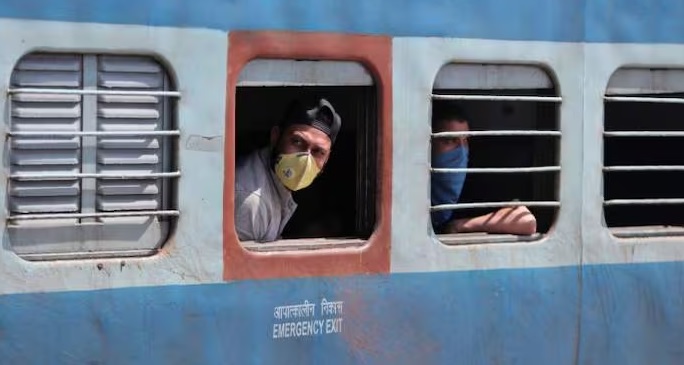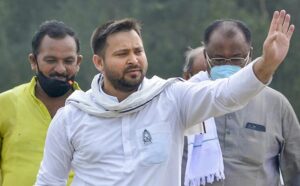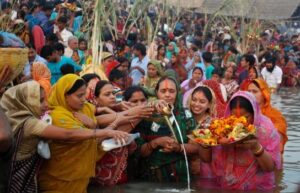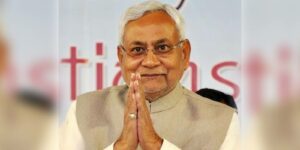Published Oct 25, 2025 | 6:09 PM ⚊ Updated Oct 25, 2025 | 6:09 PM

Parties like the RJD and BJP are reaching out to Bihari workers here, encouraging them to return home and vote.
Synopsis: As the election to Bihar’s 243-member Assembly becomes one of the most closely watched in years, the battlelines are drawn—Tejashwi Yadav’s RJD leading the Mahagathbandhan, Nitish Kumar’s JDU steering the NDA. The parties have started campaigning among guest workers from Bihar in Kerala, encouraging them to go back to their state and vote.
In a KSRTC bus heading from Aluva to Perumbavoor, a conductor first asked for the ticket in Hindi before switching to Malayalam — a small but telling reminder of how deeply migrant workers have become part of Kerala’s daily rhythm.
Hindi signboards are now a common sight along this route, which winds through one of the state’s largest industrial belts, home to lakhs of workers from northern and eastern India. Perumbavoor in Ernakulam, often described as Kerala’s ”mini-India,” stands at the centre of this quiet demographic shift.
According to a 2021 report by the State Planning Board, Kerala hosts an estimated 31.4 lakh migrant workers — officially called guest workers — forming 26.6% of the state’s total workforce. Among districts, Ernakulam alone accounts for around 6.3 lakh, followed by Thiruvananthapuram, Kozhikode, and Thrissur. Nearly 13 lakh migrants hail from West Bengal, while another 9.8 lakh are from Assam.
As Bihar’s Assembly elections approach, Kerala’s migrant corridors are quietly seeing a flurry of political activities. Parties like the RJD and BJP are reaching out to guest workers from Bihar here, encouraging them to return home and vote. Kerala hosts nearly 5 lakh guest workers from Bihar.

Tejashwi Yadav
The INDIA bloc’s chief ministerial candidate and RJD leader Tejashwi Yadav has been actively coordinating with the party’s Kerala unit for months to mobilise migrant workers’ votes.
Ahead of the election heat, the RJD National Council meeting in Patna issued strict directives to state leaders to ensure maximum migrant voter turnout.
Speaking to South First Dr Varghese George, Kerala State General Secretary of RJD, said, ”Around 20% of Bihar’s population are migrant workers. Research by the Gulati Institute estimates that nearly 5 lakh Biharis are working in Kerala. Following the Special Intensive Revision (SIR), over 65 lakh names have been deleted from the voters list, many of them migrant workers.”
He said the party held meetings with workers from Bihar in every district to ensure they are registered to vote. Most people removed from the list belong to minority communities.
”Our surveys in Bihar indicate a strong desire among Dalits, minorities, women, and tribal communities to move away from the BJP-JD(U) alliance and support the Mahagathbandhan. Unfortunately, the SIR process disproportionately affected these groups,” George said.
“We are committed to bringing as many migrant workers as possible back to vote at our own cost. If other parties like CPI(M) or Congress join this effort, the impact could be massive in Bihar,” he added.
Although Kerala’s Bihari migrant population is smaller than in states like Punjab, Delhi, Maharashtra, or Karnataka, each vote matters in tight contests.

From the Chhath Puja celebrations
When South First spoke to Eldhose Philip, a migrant labour agent in Perumbavoor, he said many of his workers had already left for Bihar for Chhath Puja, the state’s biggest festival, celebrated from 25 to 28 October.
”Chhath is like our Onam for them. Every year, many return home for the festival. Only a few who live here with families celebrate it in Kerala” Eldhose said.
He added that a special train from Ernakulam Junction to Barauni left on Thursday, carrying many of his workers, while others boarded the Ernakulam–Patna Express.
One of them, Dhiren Kumar (name changed), who has been working under Eldhose for six years, hails from Bihar’s Rohtas district.
”I’ve taken a month’s leave this year. After Chhath, every village turns political. In my constituency (Sasaram), our community has always won,” he said.
Kumar belongs to the Kushwaha community, which has long dominated the Sasaram constituency. This time, however, he expects a close fight between Prashant Kishor’s Jan Suraaj Party candidate Binay Singh and the BJP’s Snehalatha Kushwaha.
Even amidst their heavy workload, Kumar and his friends in Kerala stay updated on every political drama in their constituency, all through WhatsApp groups.
As Kumar folded his clothes and tucked them carefully into his faded suitcase, he sighed: ”I just hope whoever forms the next government creates enough jobs back home. I don’t want the next generations to leave like I did — away from our village, away from our parents.”
He then zipped the bag shut.

Naina played Bharat Mata during this year’s Independence Day celebrations
While Dhiren remains deeply attached to his homeland, families like that of Nainakumari Jha, a student at Amrita High School in Kottayam, have found comfort and belonging in Kerala.
The school now has over 10 students from North India, children of guest workers employed in the Poovanthuruth and Kaduvakkulam industrial areas.
Speaking to South First, Naina’s father said, ”In Bihar, our daily wage is barely ₹150–200. Here, I earn enough every month to support my family. Education is better, and there’s no caste discrimination — not in society, nor in school.”
Naina, who has a twin sister studying in the same school, played Bharat Mata during this year’s Independence Day celebrations — a proud moment for her family. They have decided not to travel to Bihar for the upcoming elections, as both daughters are in Class 10 and are busy preparing for board exams.
Speaking to South First, Lisha Rajesh, BJP’s Perumbavoor chief, spoke about a meeting held about a month ago under a BJP MLA from Patna. She did not reveal the MLA’s name but said he is coordinating the party’s efforts in Kerala to consolidate the migrant worker vote.
”Around 427 people from Perumbavoor’s plywood industrial area attended. In the Perumbavoor constituency, the total number of migrant workers is far higher, but they are a comparatively small, targeted group. All attendees were from Bihar. Only a few Muslims were present; the rest were Hindus,” she said.
The BJP, too, is willing to shell out money to take the guest workers back to Bihar.
“We are now preparing a list of migrant workers willing to travel to Bihar to cast their vote at our own expense. The work is ongoing, and many are still here, not having left for Chhath celebrations,” Rajesh said.
A BJP leader from Ernakulam said the party has identified Bihar districts with the largest migrant populations. East Champaran tops the list with over 6 lakh workers, followed by Patna and Siwan with around 5 lakh each, along with significant numbers from Muzaffarpur and Darbhanga.
Active door-to-door campaigns are underway in these districts, while simultaneous outreach continues in Kerala’s labour camps.
The BJP’s carefully coordinated strategy aims to mobilise migrant voters both within Kerala and back home in Bihar, highlighting the party’s tactical edge in engaging this crucial demographic.
VK Sajeev, BJP state cell coordinator, added that a special Migrant Workers Cell is being formed in Kerala.
”Kerala needs a dedicated cell for migrant workers. Currently, the BJP has 20 specialised cells, including Legal, Medical, Intellectual, and NRI cells. The new unit will focus on migrant labourers and pensioners. The state core committee has decided to establish grassroots-level units for these cells,” he revealed.
RJD Ernakulam chief Jaison Panikulangara said his party’s main challenge in reaching migrant workers is the language barrier. In contrast, Local BJP units, however, see this as an advantage, as they have grassroots workers proficient in Hindi, and many volunteers from other states are willing to campaign in Kerala.

Nitish Kumar. (X)
While the RJD unit in Kerala looks forward to the support of minority communities, especially Muslims, the BJP focuses on Hindu migrants.
With Chhath festival underway, many Hindu workers have already returned to Bihar, likely to come back only after the elections. Muslim workers, who do not celebrate Chhath, largely remain in Kerala.
Historically, over 80% of Muslim votes have gone to the RJD, a community that makes up 17.7% of Bihar’s population. In Kerala, too, most Bihari migrants are Muslims.
As the election to Bihar’s 243-member Assembly becomes one of the most closely watched in years, the battlelines are drawn—Tejashwi Yadav’s RJD leading the Mahagathbandhan, Nitish Kumar’s JDU steering the NDA. Among Kerala’s Bihari guest workers, some are half-prepared, some half-convinced, and some have already left.
And yet, despite being officially called ”guest workers” and treated with relative respect, they live in cramped, difficult conditions—a stark reminder that in the ink of democracy, it is not just votes that are counted, but the dreams, struggles, and dignity of those who build a life far from home.
(Edited by Majnu Babu).

